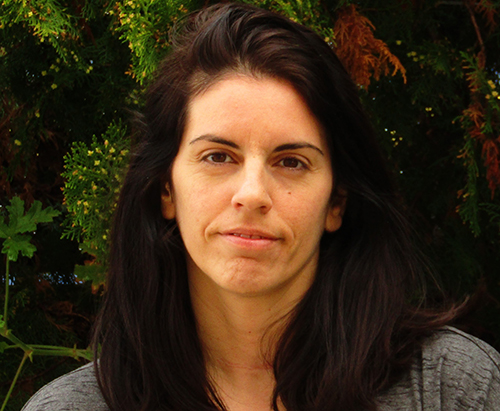GAZE
★ ★ ★ ★
MEN’S OBSESSION WITH WOMEN’S FREE TIME

By Irena Ioannou
I love Jo Nesbo’s novels. His crime fiction is not only about finding whodunit. It’s about people with weaknesses, cities bathed in corruption, and ultimately, the exploration of the human condition. His famous protagonist, Harry Hole, has many flaws, but he rarely judges people. A recovering alcoholic himself, he has seen and done enough to know better than finger-point.
Until, in one of his latest novels, Thirst, a woman happens. No. Not a victim, although most violent acts depicted in Nesbo’s novels are directed toward women. And neither a murderer. Murderers have problematic backgrounds, are often portrayed as the object of violence themselves, and thus there is plenty room for excuses. Harry Hole just runs into an ordinary neighbor whose life Jo Nesbo’s character doesn’t approve of. She is viewed as, “A housewife with two children and two home helps, and no plans to get a job even though the Norwegian state had invested five years of university education in her.” Later on, she is criticized for seeing as her job, “what other people saw as a leisure activity.” (The Thirst, p.84)
Hmm. That description struck me, made me lean closer. Why exactly is this woman reproved? For not taking care of her children on her own? For not working? For trying to bankrupt her country? For having free time, or for being rich? Why isn’t her husband being criticized for his absence in their children’s upbringing?
If Hole’s neighbor worked ten hours a day only to get home to a mess of a house and had to cook, iron, and check her children’s homework, would that make her a better mother in his eyes? Would she deserve Hole’s sympathy and admiration? Why is that? She wouldn’t be able to dedicate more time to her offspring.
On the contrary, the problem seems to me to be more that she owns her time. That she has free time. In other words, that she dares lead the life she wants. That she dares have control over her own being and feel happy.
Harry Hole is a fictional character of course, but the demand for women to sacrifice all their time to and for others is not fictional. The still present obsession with objectifying women and controlling every minute they spend should not surprise us. It’s even apparent in a contemporary story that takes place in one of the richest countries in the world, Norway, which has been ranking first in the Human Development Index for years. In a book that sold millions throughout the world.
Seriously. Why is a woman’s choices of how she spends her time worth mentioning? Why the subtle contempt? I thought we were way, way past these kinds of issues. As in:
Education is not only the means to a better job
People don’t do everything for money, or at least, they shouldn’t. Studying, learning, travelling should not only be pursued as a step for future success; the outcome and people’s performance not only measured in terms of more power, or more money.
Likewise, women didn’t fight for their right to education just to become better-paid members of the work force. Education can be an end in itself, a means to become better. As a person. Period.
Furthermore, it goes without saying that a more informed person will subsequently become a more informed parent. As numerous studies have shown, mothers’ levels of education play a pivotal role in their children’s future.
An exhausted mother is not a good mother
Being a good mother is not a pissing contest. Spending more hours on scrubbing the floor, ironing the curtains, or cooking, does not make someone a better mother. Basically, it deprives her of quality time she could have spent with her children, on herself to maintain her sanity, or to rest. No one remembers if there was dust under her bed when she was a child.
Children never forget though, that their mother was too busy to talk to them, too short-tempered to hear them out, too tired to invite friends over or take her children to a party, and too confused that life played out completely different from what she’d envisaged. That they were raised by a resentful mother.
Why is a mother’s free time often viewed with contempt?
If asked when out, many men say their wives have their hands so full they couldn’t join them at the wedding, basketball game, night out. Usually nobody asks, what they are doing there, since there is so much to be done at home.
On other occasions, men admit that they go the gym as a way to relax, to leave the house for a while. Because life with children is wearing. Everybody nods, but rarely one asks where their wife is, because it goes without saying that for one spouse to go out, the other spouse has to stay in. Simple math.
Harry Hole’s neighbor is described as having enough money to hire two helps, so her exiting the household doesn’t imply that her poor husband stays behind, inside closed walls. They are both out, but not together, and the wife, and only the wife, is still viewed with contempt. Why?
Unfortunately, the questions cannot be answered in any other way. It’s all about control. A married woman, a mother having a full plate, is the only way a man can exercise control over his wife. By keeping her inside. By helping only as long as his wife’s also tied up. By not taking over in order for her to go to the gym, or out with friends.
Not that the majority of men have a problem with their wife going to the gym. As long as she’s taken care of her business, she can go anywhere, of course. It’s just that, in their experience, her business never ends.

Irena Ioannou writes from Crete, Greece and her work has recently appeared or is forthcoming in Betty Fedora, Flash: The International Short-Short Story Magazine, Mortar, OTV, and elsewhere. She is a mother of five.

DEAR READER
At The Wild Word we are proud to present some of the best online writing around, as well as being a platform for new and emerging writers and artists.
If you have read the work in The Wild Word and like what we do, please put something in our tip jar.
THANK YOU FOR YOUR SUPPORT!























